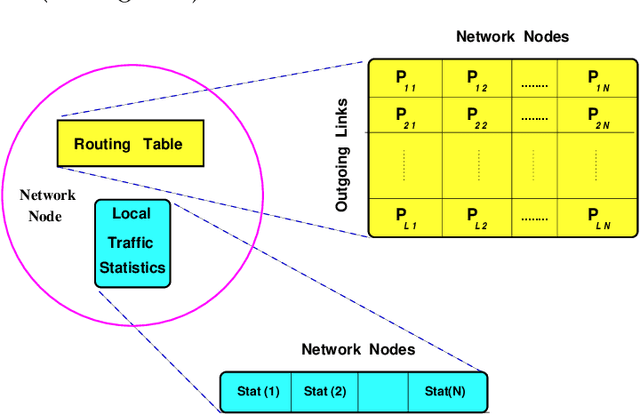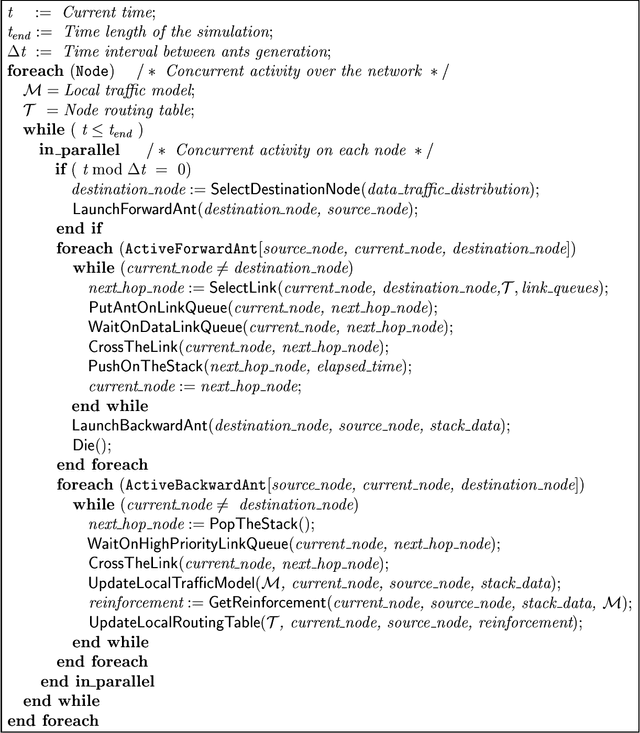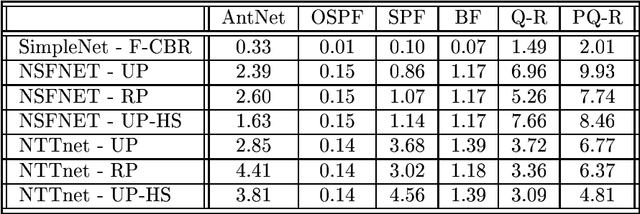G. Di Caro
AntNet: Distributed Stigmergetic Control for Communications Networks
May 27, 2011



Abstract:This paper introduces AntNet, a novel approach to the adaptive learning of routing tables in communications networks. AntNet is a distributed, mobile agents based Monte Carlo system that was inspired by recent work on the ant colony metaphor for solving optimization problems. AntNet's agents concurrently explore the network and exchange collected information. The communication among the agents is indirect and asynchronous, mediated by the network itself. This form of communication is typical of social insects and is called stigmergy. We compare our algorithm with six state-of-the-art routing algorithms coming from the telecommunications and machine learning fields. The algorithms' performance is evaluated over a set of realistic testbeds. We run many experiments over real and artificial IP datagram networks with increasing number of nodes and under several paradigmatic spatial and temporal traffic distributions. Results are very encouraging. AntNet showed superior performance under all the experimental conditions with respect to its competitors. We analyze the main characteristics of the algorithm and try to explain the reasons for its superiority.
 Add to Chrome
Add to Chrome Add to Firefox
Add to Firefox Add to Edge
Add to Edge